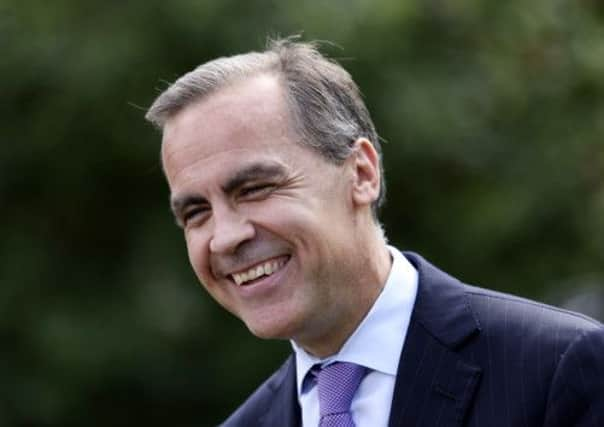No big interest rate changes soon, says Carney


But with a heavy overhang of debt, he acknowledged that advanced economies may have entered a phase of low growth and said central banks still needed to deploy a range of monetary policies in a co-ordinated approach.
In a generally upbeat speech to the Economic Club of New York, Carney said that, as uncertainty reduces, credit conditions improve and balance sheets continue to be repaired, monetary policy in the UK was gaining traction.
Advertisement
Hide AdAdvertisement
Hide Ad“For the first time in a long time, it seems reasonable to expect the hopes and dreams of the holiday season to be fulfilled,” he said.
But he also cautioned that the “Ghost of Christmas Past” should not be forgotten. “A recovery may be gaining pace but our economies are a long way from normal. Leverage is still high and weak demand for advanced economy exports could persist for some time,” he said.
The strength of the UK recovery this year has taken almost everyone by surprise and Carney said a pick-up in productivity meant interest rates could stay at record lows for longer.
“If supply responds to recovering demand, unemployment will fall more slowly than otherwise and the point at which we will re-evaluate the stance of monetary policy will come later.”
Carney said providing guidance on the likely path for interest rates had provided reassurance that monetary policy would not be tightened prematurely.
In August, the Bank pledged it would not even consider raising interest rates until unemployment had fallen to 7 per cent, something it does not expect to happen for another year at the earliest.
But Carney said the Bank was vigilant to the risk of unbalanced growth, such as from the housing market, and cited the central bank’s recent decision to put the brakes on the Help to Buy scheme to help boost the mortgage market as an example of its flexibility to address such issues.
Such measures, he argued, would allow monetary policy to remain stimulative as long as needed.
Advertisement
Hide AdAdvertisement
Hide AdThe governor argued that, although the UK had been in a situation in which conventional monetary policy had not been able to stimulate demand sufficiently to keep economic activity at its potential level, this had not generated a deflationary spiral and there was early evidence that this “liquidity trap” would be escaped over time.
He also challenged those who maintained that weak potential supply growth would constrain the pace of recovery.
David Tinsley, UK economist at investment bank BNP Paribas, said the speech “re-iterates the essential philosophy of the new governor”.
He added: “The upshot is he is in no rush to raise rates, but is a relatively optimistic that stimulatory policy works.” Carney concluded that, although central banks could be a catalyst for recovery, long-term prosperity across economies would depend on measures taken to increase the growth of supply capacity, particularly those that reinforced an open, global trading system.
“So while it is unsurprising that the ideas behind secular stagnation are being revived, it would be a mistake to rush to a more extreme macroeconomic response,” noted Carney.
“There is a long history of pessimism in economics. Such worries have proven misplaced in the past and scepticism is warranted now.”